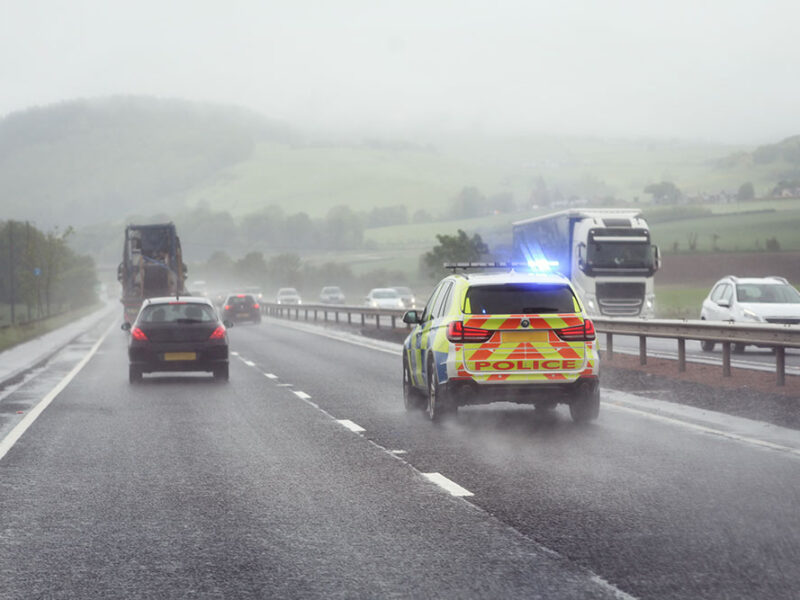The European Court of Justice has ruled that HGV drivers may not take full 45 hour weekly rest periods in the cabs of their vehicles, and that national governments are entitled to penalise drivers who contravene that prohibition.
The ruling was made following a Belgian case involving an operator whose driver had been issued with an 1,800.00 Euro fine for taking a full weekly rest in the cab of his vehicle. The operator appealed on the basis that there was nothing in the EU Drivers Hours Regulation (EC) 561/2006 which specifically prohibits a driver from doing so - and, therefore, that the state had no legal power to issue penalties.
The Belgian appeals court hearing the case referred it to the European Court, seeking a ruling on whether the EC Drivers' Hours Regs should be interpreted as meaning that drivers may not take full weekly rests in vehicle cabs (and if yes, whether it is lawful under European Charter principles for any nation state to criminalise taking full weekly rest periods in cabs given that the EC Regs do not specifically prohibit it).
The European Court looked closely at the EC Regulation - and in particular, its overall objective which includes seeking "...to improve working conditions and road safety" and concluded that the Regulation was intended to prohibit taking full weekly rests in cabs (the Regulation makes it clear that daily rests and REDUCED weekly rest periods may be taken in vehicle cabs, as long as the cab is suitably equipped).
The Court ruled that Member States are entitled to put in place national measures to prohibit drivers taking full weekly rests in cabs and to punish contraventions, despite there being no specific reference to any offence in the EC Regulation.
UK operators should be aware that under domestic law, the DVSA now has powers to issue fixed penalty fines where drivers take full weekly rests in vehicle cabs: presently, according to DVSA guidance, fines will only be issued where those weekly rests are taken in areas where there is no access to toilets, showers or food facilities - it remains to be seen whether in the light of this decision, national measures will be stepped up to include an outright prohibition on any full weekly rest being taken in the cab (but it seems likely that this will be the consequence).
Our advice is that full weekly rests should always be taken away from the vehicle cab at a place where there are proper facilities to ensure comfort and adequate rest for the driver.
If you would like any further information on this issue or any other issue affecting your business, then call us now on 01279 818280.
February 2018

More News and Insight

Walkaround Checks – Where Road Safety Starts
Every day, often before the sun is above the horizon, hundreds of thousands of commercial vehicles are started up by their drivers and then they head out on to the UK’s road network to transport goods or passengers from one point to another, often with demanding time constraints thrown into the mix…

Traffic Commissioner’s Annual Report 2024/25: “Don’t Look Back in Anger”
Time has flown by and once again we find that the schools are back after the long summer break and the Office of the Traffic Commissioner has issued its annual report to the Secretary of State, providing a review of the year…

An Apple a Day to Keep the DVLA Away – A review of the DVLA’s Rules on Health Checks for Professional Drivers
There has been some discussion in the industry trade press recently that has highlighted proposed changes to how the disease of diabetes is monitored in professional drivers by the DVLA. One article in RouteOne Magazine stated that…

Light Goods – Heavyweight Industry: The DVSA’s New LGV Strategy
While relatively small in overall physical size light goods vehicles (LGVs) are now a large part of the UK road transport industry. There are currently estimated to be over 5.1 million light goods vehicles on UK roads today…

Employment Law Update – A tale like Scylla & Charybdis
Operators currently face their own real time nightmare in the form of a modern day version of the Greek mythological tale of Scylla and Charybdis (where sailors faced a narrow strait through which they had to pass which had a monster on one side and a whirlpool on the other!)…

Labour Government – Employment Rights Bill – What Will It Mean for Transport Businesses?
In October 2024 the Deputy Prime Minister, Angela Rayner set out her intention to reform the employment rights held by employees in the UK. In a press release issued at the time she is quoted a saying…

Revisiting the DVSA’s Guide to Maintaining Roadworthiness
In April 2025 the Driver & Vehicle Standards Agency (DVSA) issued the latest edition of its Guide to Maintaining Roadworthiness.

The Wheels on the Bus go Round & Round….but how do they Stop?
At the tail end of 2024 a Public Inquiry was held in front of Traffic Commissioner Kevin Rooney where the subject of brake maintenance practices was called into question…

Maintenance Provision Rating Scheme for Commercial Vehicle Workshops is Launched
One of the key tenants of running a commercial vehicle operation, whether ‘HGV’ or ‘PSV’ is that the maintenance of the vehicles is paramount. For some operators this will mean having their own maintenance facilities and teams to look after their fleet of vehicles in house, but the majority of operators in the UK are reliant on 3rd Party maintenance providers…

Changes to Brake Safety Inspections for Commercial Vehicles – April 2025
In April 2025 the brake testing regime guidance will change. Roller Brake Tests, that have been mandatory for years, will be joined by an Electronic Break Performance Monitoring System or EBPMS…

Case Study – Public Inquiry for Gillbard Plant, Autumn 2024
Gillbard Plant was called to Public Inquiry in Autumn 2024. The hearing made headlines in the transport press due to the element of “DVSA Poacher turned Game-keeper” of Gillbard Plant’s Transport Manager, Mr. Anthony Brayley-Willmetts, a former DVSA (VOSA) examiner turned transport consultant…

DVSA Load Security Guidance – Updated December 2024
When carrying loads on lorries every HGV Operator knows how important it is to ensure that goods are secured safely so that they arrive at their destination in good condition and that they do not cause any damage or danger on the UK’s roads during the process of transporting them…
